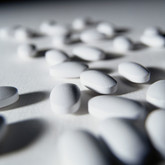Generics
Alvogen receives European approval for generic lenalidomide
US generics company Alvogen announced on 24 April 2018 that it had successfully concluded multiple registration procedures for its lenalidomide generic capsules.
Trends in use of Lipitor after introduction of generic atorvastatin
Big savings can be made after the introduction of generics, especially when it comes to high volume categories, such as statins. Pfizer’s Lipitor (atorvastatin) was the best-selling drug of all time until it lost its patent protection at the end of June 2011 [1] and a generic version became available in the US in November 2011 [2]. However, the impact of the introduction of generics on use of Lipitor is not known. Therefore, researchers from Duke and Yale Universities analysed trends in use and expenditures associated with Lipitor after generic atorvastatin became available [3].
Teva launches ulcerative colitis generic in the US
Israeli generics giant Teva Pharmaceutical Industries (Teva) announced on 26 March 2018 that it had launched generic mesalamine delayed-release tablets (1.2 g) in the US.
Switchback rates between generic and brand-name drugs
A study carried out by researchers from Harvard Medical School found a lower rate of switchback when patients were switched to an authorized generic from the brand-name product rather than when they were switched to another generic drug product [1].
Generics companies defend against illegal ‘pay-for-delay’ charges
In March 2018, pharmaceutical companies in the US and Europe have had to defend themselves against antitrust charges. Illegal ‘pay-for-delay’ deals enable companies to profit by delaying the release of generic drug products [1]. In recent months, generics manufacturers, Impax Laboratories Inc in the US and Teva Pharmaceutical Industries (Teva) in Europe, have both been accused of entering into such deals with originator companies. In addition, US companies, Endo, Watson, Teikoku are to pay over US$270 million to settle pay-for-delay lawsuits over Endo’s Lidoderm (lidocaine) pain patch.
Australia’s Mayne Pharma launches generic antibiotic in US
Australia-based Mayne Pharma announced on 15 March 2018 that it had launched a generic version of doxycycline monohydrate immediate release (IR) capsules (50, 75 and 100 mg) in the US.
Portugal increases use of generics for treatment of cardiovascular diseases
In Portugal, the use of medicines for cardiovascular system increased nearly two-fold between 2000 and 2010. As such, over a quarter of the overall expenditure on medicines during these years went towards the treatment of cardiovascular issues [1]. However, it is possible that there may be room for cost saving on these medicines through increased uptake of generic and essential medicines. A recent study by Gama et al. has outlined the trends in outpatient cardiovascular medicine use in Portugal between 2004 and 2012, with focus on the uptake of generic and essential medicines [2].
NGO urges HIV drug patent application to be denied in Argentina
In March 2018, Argentine NGO, the Fundación Grupo Efecto Positivo (FGEP), requested that the country’s National Institute of Industrial Property (INPI) deny Gilead Sciences Inc’s patent request for an antiretroviral drug.
Pharmaceuticals and products liability litigation
In 2016, healthcare spending represented 17.9% of the economy of the US, a slight increase from 2015. By 2016, the average consumer in the US expended US$1,100 per capita on prescription drugs. Authors Katie McCarthy and Richard Hunter discuss the interconnections between the different types of product liability claims related to marketing and manufacturing of drugs in the pharmaceutical industry, rising drug costs, the increasing availability of generics in the marketplace. They also discuss several major cases and the outcomes of those cases as they relate to the social responsibility of drug manufacturers [1].
GSK fined GBP 37.6 million in pay-for-delay appeal
GlaxoSmithKline (GSK) has lost its appeal over a pay-for-delay case dating back to the early 2000s and involving its now off-patent antidepressant Seroxat/Paxil (paroxetine).












